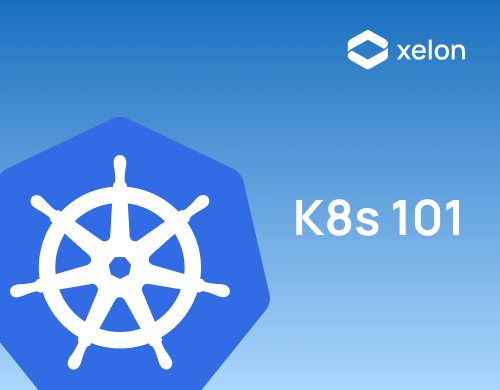In software development, speed, scalability, and reliability are critical factors. This is exactly what Kubernetes provides. Here’s an overview of the trending technology, Kubernetes.
In this blog post, you’ll learn what Kubernetes is, why this open-source system for managing containerized applications is also called K8s, what the key features of this trending technology are, and how Kubernetes enables the automated deployment, scaling, and management of highly available applications or microservices.
What is Kubernetes (K8s)?
Kubernetes (often abbreviated as ‘K8s’) is an open source platform for automating the deployment, scaling and management of containerised applications. It was originally developed by Google and is now managed by the Cloud Native Computing Foundation (CNCF).
Fun fact: The abbreviation K8s comes from the fact that there are eight letters between the ‘K’ and ‘s’ of Kubernetes.
Important functions of Kubernetes:
-
Container orchestration: Kubernetes controls and manages containers running in environments such as Docker. It helps to coordinate multiple containers on different hosts.
-
Auto-scaling: Kubernetes can automatically scale the number of running containers depending on the load to meet the requirements.
-
Self-healing: If a container crashes, Kubernetes restarts or replaces it to ensure the availability of the application.
-
Load balancing: It automatically distributes network traffic across multiple containers to ensure optimal performance and availability.
-
Deployment and rollbacks: It enables incremental updates of applications and, if necessary, simple rollbacks if problems occur.
In addition to software developers and SaaS companies, modern container technologies like Kubernetes are becoming increasingly relevant for Managed Service Providers looking to expand their service offerings. However, building a stable, highly available control plane requires not only deep expertise in container orchestration, but also significant effort for maintenance, security updates, and scaling.
With the Xelon Kubernetes Service, Managed Service Providers now have access to a fully managed Kubernetes solution that can be resold under their own brand. This allows them to provide Kubernetes clusters to their customers without having to manage the underlying infrastructure themselves. Managed Service Providers retain full control over the customer experience, as the Xelon Kubernetes Service can be integrated into existing offerings and presented under their own name.
From a technical standpoint, the Xelon Kubernetes Service offers full access to the Kubernetes API. A REST interface also allows the platform to be integrated into existing systems. All customer data and applications run exclusively in Swiss data centers and are subject to Swiss law. This effectively excludes access through foreign legislation, such as the US Cloud Act. For organizations in regulated industries like finance, healthcare, or public administration, this is an increasingly important factor.
Kubernetes application scenarios:
-
Cloud-native applications: Kubernetes is ideal for microservices architectures and cloud-based applications as it greatly simplifies development and operations.
-
CI/CD: Kubernetes is used in continuous integration and continuous deployment pipelines to enable automated tests, deployments and rollbacks.
-
Software development: In software development, Kubernetes enables the easy creation of multiple identical application instances, laying the foundation for efficient development processes.
Overall, Kubernetes helps to efficiently manage complex container environments and reliably run applications on a large scale.
The Xelon Kubernetes Service supports software developers, SaaS companies, and managed service providers in building and operating secure, highly available applications and microservices. It allows you to offer Kubernetes clusters to your customers without having to invest in building and maintaining your own control plane. You can find out more about our Kubernetes service here.
